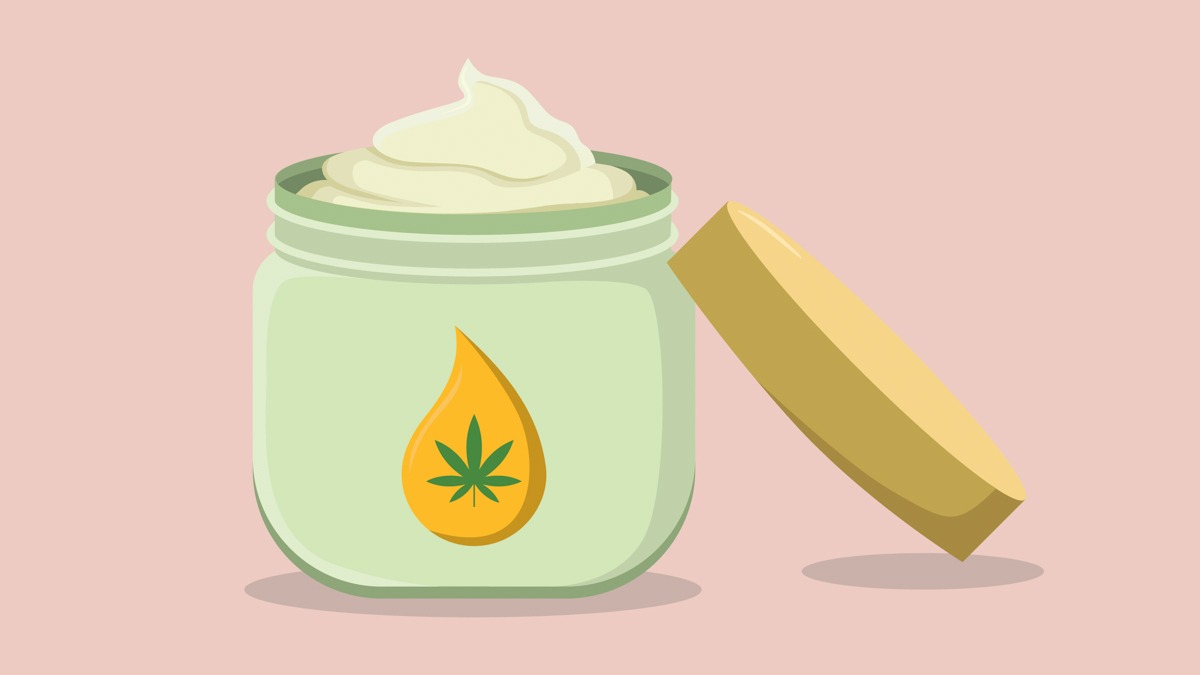CBD topicals are becoming more and more popular.
Topicals provide a way to administer CBD directly to an affected area of skin to treat many skin, muscle, and joint conditions.
CBD creams are excellent for targeting pain directly at the source, be it an inflamed area of skin, recovering muscle, or painful joint.
Many people use CBD creams and other topicals to treat arthritis, psoriasis, and muscle soreness with great results.
So, how does CBD cream work, and what conditions can it treat?
Top 3 CBD Creams for Pain:
- Royal CBD — Best CBD Cream Overall
- Gold Bee CBD — Best CBD Oil For Making Topicals
- Hemp Bombs CBD — Best Pure CBD Cream
Best CBD Creams for Pain
1. Royal CBD Cool Relief Cream
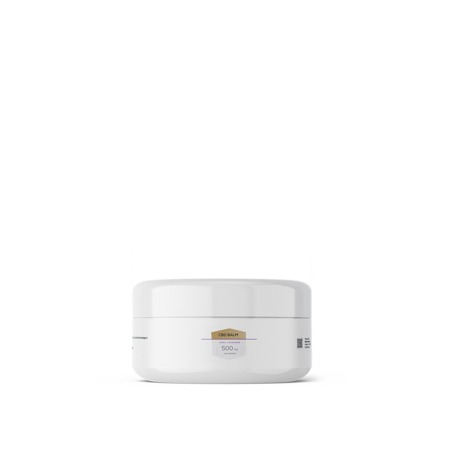 Royal CBD focuses on producing high-quality CBD products. They have an extensive range of products, including two topicals — 500 mg cool relief CBD cream and a 350 mg cool menthol roll-on gel.
Royal CBD focuses on producing high-quality CBD products. They have an extensive range of products, including two topicals — 500 mg cool relief CBD cream and a 350 mg cool menthol roll-on gel.
Both of their topical CBD products are broad-spectrum. This means you will benefit from a full-cannabinoid profile without any THC.
Their roll-on gel combines CBD with the cooling relief of menthol extract and the moisturizing benefits of aloe vera. This gel is perfect for easing the pain on sore, irritated areas of skin.
Their cool relief CBD cream is perfect for treating a variety of skin and joint conditions. It’s also great for relieving muscle soreness after workouts. It combines 500 mg of CBD with a range of natural essential oils to provide instant cooling relief.
Key Points:
- 2 high-quality topicals available
- Broad-spectrum CBD used in both products
- 500 mg (high-potency) cream
- 5-star customer service
- Uses certified organic hemp
- CO2 extraction process
- Excellent cannabinoid profiles — independent lab tested.
2. Gold Bee Pain Cream
Gold Bee CBD is a relatively small company that puts an incredible amount of care into its products. Their product range is limited, but what they lack in variety they make up for in quality.
If you’re particularly sensitive to skincare products and have a specific cream at home that is good for your skin, mixing Gold Bee’s CBD pain cream is a great way to reap the benefits of CBD for skin and muscle pain.
This topical sells out quickly, so if they’re out of stock, make sure to check in a few days later.
Key Points:
- Full-spectrum CBD Oil
- Uses certified organic hemp
- Freedom to mix it with your favorite creams
- Small company with incredible attention to detail
- Slow-diffusion extraction process
- High terpene and cannabinoid content — independent lab tested
3. Hemp Bombs CBD Pain Freeze
Hemp Bombs CBD specializes in producing CBD products using high-quality CBD isolate.
Hemp Bombs CBD has a wide range of topical products. They provide creams, balms, lotions, sprays, and even bath bombs.
If you react negatively to other cannabinoids found in broad- and full-spectrum products, Hemp Bombs CBD is a great company to look into.
We particularly like their high-potency CBD pain rub for treating pain and inflammation. This 1000 mg rub is perfect for treating severe joint and muscle pain — however, you will not benefit from the entourage effect because of the lack of other cannabinoids.
Key Points:
- Excellent range of topicals
- CBD isolate
- Uses U.S-grown organic hemp
- High-potency creams and balms available
- Third-party lab tested
What is CBD Cream?
CBD creams are topical lotions that can be applied to the skin to treat a variety of conditions.
You’ll also find roll-ons, gels, and balms that work similarly. All of these products serve the same purpose, to reduce pain, irritation, and inflammation.
Topical CBD products can be applied all over the body, but it’s commonly applied to the elbows, knees, shoulders, and feet to relieve joint pain, muscle soreness, and skin irritation.
CBD cream can be used to treat inflammatory skin conditions such as psoriasis, and it may also help relieve inflammatory joint conditions such as arthritis.
Does CBD Cream Help With Pain?
Studies suggest that CBD can help with pain and inflammation and a whole host of other issues when ingested orally [2].
So, does CBD help with pain when used in topical form?
In short, yes.
CBD can help tremendously with pain when applied to the skin as a cream. There’s plenty of scientific research to prove this too.
One 2016 study discovered that when a transdermal CBD gel was administered to rats with arthritis, joint swelling was significantly reduced [3]. As well as the reduction of inflammation, the study found that limb posture and spontaneous pain improved dramatically.
A later study (2019) looked into the effect of CBD-enriched ointment in inflammatory skin diseases and cutaneous scarring [4]. The study concluded that THC-free CBD ointment significantly improved skin parameters in people with psoriasis, dermatitis, and scars.
They also noted that no irritation or negative reactions appeared in any of the 20 patients tested.
The Benefits of CBD Cream
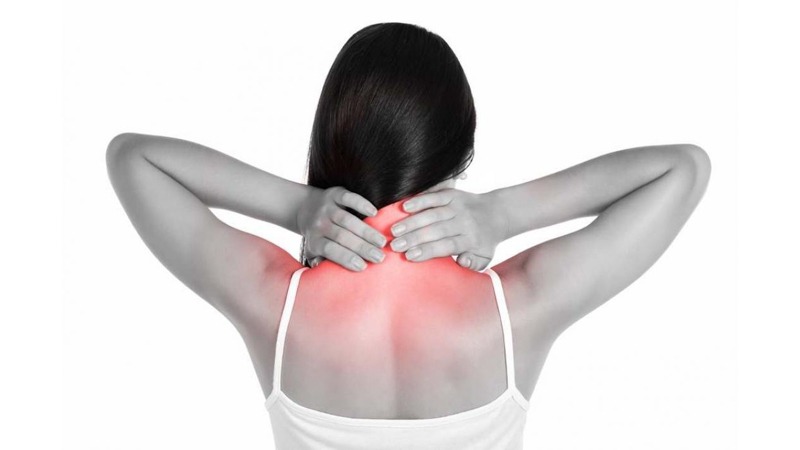
There are several benefits of using CBD cream.
We’ve mentioned some of the benefits already, but we’ll be looking more in-depth into how exactly CBD topicals can benefit you in this section.
CBD cream can help reduce pain directly and indirectly. CBD has pain-relieving qualities which will help reduce pain at the source. Other benefits of CBD will help combat some other side effects of certain conditions — indirectly reducing pain and irritation.
1. CBD Cream Provides Pain-Relief
CBD has pain-relieving qualities. If you’re suffering from joint pain due to arthritis, muscle soreness during exercise recovery, or pain from a skin condition, CBD may help you.
One 2018 study reviewed several different studies on the benefits of certain cannabinoids (including CBD) on pain [5]. They uncovered research that focused on the pain-relieving qualities of CBD.
The research outlined the role of CB1 and CB2 receptors in pain management and how CBD can influence these receptors.
2. CBD Cream is Anti-Inflammatory
CBD has anti-inflammatory qualities.
Several studies using animal testing methods have discovered the anti-inflammatory properties of CBD [6]. Although these studies primarily used rats as the test subjects, the endocannabinoid system works similarly for all mammals.
These studies looked into the effects of CBD on osteoarthritis. Results show a reduction in joint inflammation and a reduction of arthritis-associated pain.
It’s not just joint inflammation that CBD cream may help either.
Another 2020 study looked into CBD’s anti-inflammatory benefits on a range of inflammatory skin conditions [7]. The study analyzed the effects of CBD on dermatitis, psoriasis, acne, and scleroderma.
The research shows a reduction of inflammation from CBD or similar synthetic cannabinoids for all of these skin conditions.
3. CBD Cream is Anti-Bacterial
CBD cream is anti-bacterial. This benefit can greatly improve bacterial skin conditions such as eliminating pimples and cellulitis.
CBD and other cannabinoids have antimicrobial properties [8]. Although not a replacement for antibiotics, they can help reduce flare-ups and irritation from bacterial skin infections when used in a topical form.
CBD cream may also help reduce zits because of this factor. Used as part of a daily skin routine, CBD may help clear up your skin even if you don’t suffer from a specific bacterial condition.
4. CBD Cream has Antioxidant Properties
CBD has antioxidant properties. Antioxidants help defend your cells from free radicals.
Free radicals are potentially harmful molecules that can damage cells and cause harm to the body if levels become too high. They’ve been linked to several illnesses, including diabetes and cancer. They can also cause damage to the skin and are believed to be responsible for age-related skin problems like blemishes, wrinkling, dark spots, and loose skin.
As some studies suggest, CBD may have antioxidative properties that help reduce free radicals and defend your body from them [9].
What Conditions Can You Use CBD Cream For?
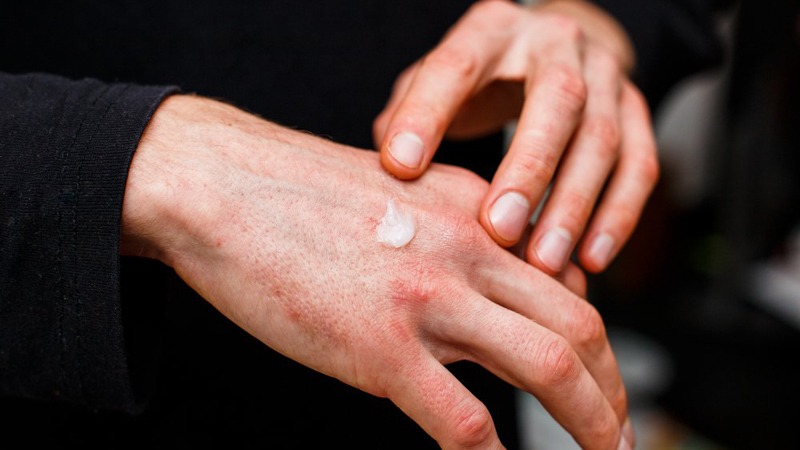 There are many conditions that CBD cream can help. CBD cream can help relieve pain in the muscles, joints, and skin. It can also reduce inflammation in the same areas.
There are many conditions that CBD cream can help. CBD cream can help relieve pain in the muscles, joints, and skin. It can also reduce inflammation in the same areas.
Whether you’re suffering from joint pain due to arthritis, muscle soreness from working out, or irritation from psoriasis, CBD cream can help.
The cannabinoid’s pain-relieving, anti-inflammatory, antibacterial, and antioxidant properties work together to reduce the number of symptoms from several different conditions.
Below is a list of just a few of the conditions that CBD may be able to help. Users have had great results with CBD topicals for these conditions:
- Arthritis
- Psoriasis
- Dermatitis
- Acne
- Eczema
- Burns & bruises
- Muscle soreness
- Swelling
- Twists & sprains
- Insect stings & bites
- Tendonitis
- Menstrual cramps
- Scaring
How Does CBD Cream Work?
When CBD cream is applied to the skin, it penetrates both dermal and subdermal skin layers to interact with the endocannabinoid system.
Because CBD penetrates so deep into the skin, it’s not only effective for treating skin conditions but also for relieving pain in the joints and muscle soreness.
CBD works by interacting with CB1 and CB2 receptors that make up the endocannabinoid system [1]. These receptors are located all over the body, including the skin and muscle tissue.
When the cannabidiol in CBD cream penetrates the skin, it interacts with these cell receptors and impacts signaling activity. This triggers certain responses within the body that help relieve pain and reduce inflammation.
Where Can You Buy CBD Cream?
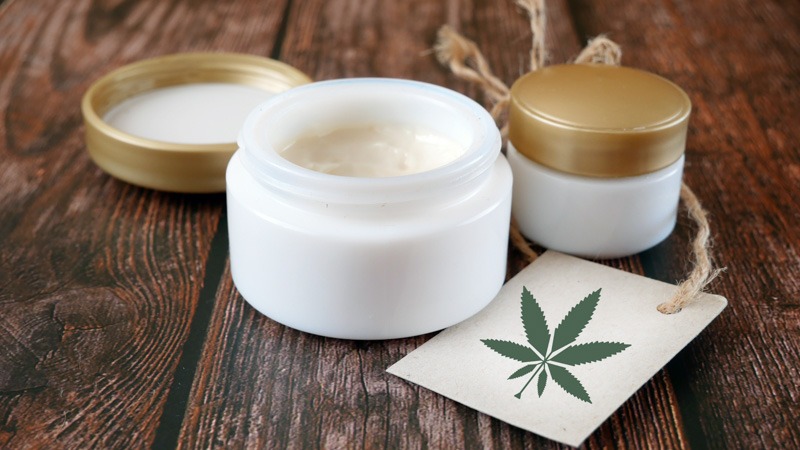 CBD creams are widely available.
CBD creams are widely available.
You’ll find CBD creams at your local dispensary, selected health stores, and even in certain supermarkets.
However, the best place to source CBD cream is on the internet.
When you purchase CBD creams, balms, lotions, and other topicals directly from the manufacturer, you’re guaranteed to get exactly what you came for.
When you head directly to the source through the internet, you’ll be able to look at detailed descriptions of each product as well as independent lab reports stating the cannabinoid and terpene percentages of each product.
You may also benefit from monthly subscription and member discounts, seasonal discounts, coupon codes, and other financial benefits.
Are There any Side Effects of Using CBD Cream?
There are limited reported side effects of using CBD topicals for pain. The study mentioned earlier specifically mentioned no reported negative reactions to the topical used in their test [4].
However, CBD does work differently from person-to-person and the other ingredients in the topical’s make-up may cause certain side effects for some.
When trying a new CBD cream, balm, or gel for the first time, it’s important to test it on a small patch of skin.
Apply the product to a small area of skin and wait for one to two hours before applying the cream to the affected area. This small test will help you find out how your body reacts to the cannabinoids and other components of the topical without risking your health.
As long as you have no adverse reactions, it should be safe to apply the desired amount of CBD to the affected area without worry.
Will You Fail a Drug Test After Using CBD Cream?
The short answer to this question is no.
When you apply CBD as a cream, balm, or gel, your skin acts as a natural barrier between the cannabinoids and your bloodstream.
Even if you’re using a full-spectrum CBD topical containing 0.3% THC or less, the THC will not reach the bloodstream — meaning it won’t show up on a drug test involving blood, urine, or saliva.
You will also not get high from using a CBD topical, even if it contains more than 0.3% THC (legal in “green” states).
Although THC will react with CB1 and CB2 receptors present in the skin, muscle system, and nervous system, it will not reach the brain. This makes the cannabidiol (CBD) incapable of producing any psychoactive effects.
There is one exception to this, though.
Transdermal THC/CBD patches that work similarly to nicotine patches bypass the skin barrier and allow the psychoactive cannabinoid into the bloodstream and the brain.
Suppose these patches contain a significant amount of THC. They will cause impairing effects. In other words, they’ll get you “high.”
Because of this, they’ll also cause a positive result on blood, urine, saliva, and hair follicle drug tests.
Final Thoughts: CBD Cream for Pain: Does it Work?
In short, yes, CBD cream does work for treating pain.
CBD has fantastic pain-relieving and anti-inflammatory qualities.
When used as a locally applied topical, CBD targets pain and inflammation directly at the source.
Combining orally consumed CBD with CBD cream provides a natural way to treat pain and discomfort from two angles. When used this way, CBD can combat internal and external pain and interact with CB1 receptors to reduce inflammation all over the body.
If you’re looking for the best CBD cream for pain, we recommend Royal CBD’s Cool Relief Cream. Using it on its own or in conjunction with one of their high-potency CBD oils is the best way to treat joint, muscle, and skin pain.
References Used In This Article
- Zou, S., & Kumar, U. (2018). Cannabinoid receptors and the endocannabinoid system: signaling and function in the central nervous system. International journal of molecular sciences, 19(3), 833.
- Maroon, J., & Bost, J. (2018). Review of the neurological benefits of phytocannabinoids. Surgical neurology international, 9.
- Hammell, D. C., Zhang, L. P., Ma, F., Abshire, S. M., McIlwrath, S. L., Stinchcomb, A. L., & Westlund, K. N. (2016). Transdermal cannabidiol reduces inflammation and pain‐related behaviors in a rat model of arthritis. European Journal of Pain, 20(6), 936-948.
- Palmieri, B., Laurino, C., & Vadalà, M. (2019). A therapeutic effect of CBD-enriched ointment in inflammatory skin diseases and cutaneous scars. Clin Ter, 170(2), e93-e99.
- Vučković, S., Srebro, D., Vujović, K. S., Vučetić, Č., & Prostran, M. (2018). Cannabinoids and pain: new insights from old molecules. Frontiers in pharmacology, 9, 1259.
- Philpott, H. T., O’Brien, M., & McDougall, J. J. (2017). Attenuation of early phase inflammation by cannabidiol prevents pain and nerve damage in rat osteoarthritis. Pain, 158(12), 2442.
- Scheau, C., Badarau, I. A., Mihai, L. G., Scheau, A. E., Costache, D. O., Constantin, C., … & Caruntu, A. (2020). Cannabinoids in the pathophysiology of skin inflammation. Molecules, 25(3), 652.
- Karas, J. A., Wong, L. J., Paulin, O. K., Mazeh, A. C., Hussein, M. H., Li, J., & Velkov, T. (2020). The antimicrobial activity of cannabinoids. Antibiotics, 9(7), 406.
- Atalay, S., Jarocka-Karpowicz, I., & Skrzydlewska, E. (2020). Antioxidative and anti-inflammatory properties of cannabidiol. Antioxidants, 9(1), 21.

